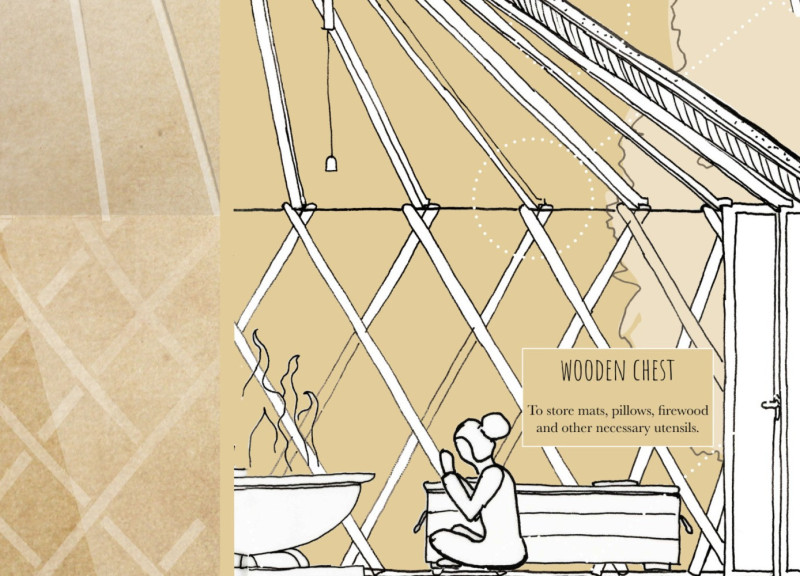5 key facts about this project
The Teneti Meditation Space, designed for Earth Energies NZ, represents a functional architectural project in New Zealand aimed at providing a serene environment for meditation and mindfulness practices. This space integrates local materials and sustainable design strategies, aligning with contemporary architectural principles of environmental consciousness and community engagement.
The primary function of the Teneti Meditation Space is to serve as a tranquil venue for individuals seeking meditation. It reflects a commitment to creating a healthy indoor environment that promotes well-being through mindful design approaches. The structure features several significant components, including a central meditation circle, a fire bowl, and optimized natural light through skylights. Each element contributes to a cohesive design focused on enhancing the meditational experience.
Unique Design Approaches
The Teneti Meditation Space distinguishes itself through its lightweight construction and low carbon footprint. Utilizing locally sourced materials, primarily sheep wool for insulation, the project minimizes environmental impact while enhancing the comfort of the interior. The reliance on organic materials, such as timber and felt mats, establishes a connection with the surrounding landscape and cultures, further reinforcing its thematic essence.
The flexible floor plan allows for adaptability in response to diverse user needs. With options for different configurations, the space facilitates various group sizes and activities. The integration of traditional nomadic architectural elements, specifically the influence of yurts, underscores versatility and simplicity while providing a strong sense of community.
Sustainable Practices and Accessibility
Sustainability permeates the design through conscious choices aimed at reducing the embodied carbon levels. Materials like concrete are used judiciously, ensuring a balance between structural integrity and environmental responsibility. The design incorporates features like skylights for natural ventilation and illumination, which not only enhance the interior ambiance but also promote energy efficiency.
Accessibility is a key consideration, with pathways and entry points designed for ease of use by individuals with varying mobility levels. This emphasis on inclusivity fosters a sense of community and encourages shared experiences.
Explore this project presentation for a comprehensive view of the architectural plans, sections, and designs that detail the considerations and outcomes of the Teneti Meditation Space. Engaging with these elements will provide deeper insights into the architectural ideas and methodologies utilized in this unique project.





















































